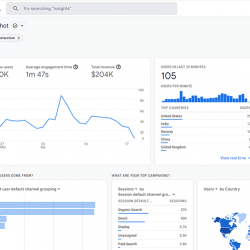Think of the following scenario; you run an activity centre that caters to adults, families, and children; in other words, the whole range.
Who should you target with your marketing if you want to attract families? The parents, or the kids? Does it even matter which one you choose?
Let's take a look at the differences here.
Marketing to parents
It might seem as though it's common sense that you advertise to the ones with the buying power. More often than not, it's the parents who pay for the children on days out. So it makes sense to advertise to them, right?
But have you ever stopped to wonder what their attention span is? Think of all the things parents have to do and remember to do in a day. Has everyone been fed? Has the right child gone to the right school? Whose sock is that on the floor? Oh, that reminds me, the washing needs to go on.
All that sounds stressful and overwhelming, and your advertising needs to stick in there somewhere.
So let's take a look at three ways you can target parents (and make it stick).
1. Be direct
You might think about beating around the bush with your messaging, but these messages aren't likely to stick.
Think of short, sharp, terms that you can use. Try messages like "Halloween Sugar Rush? Burn It Off! Book Now!".
This directness needs to be carried on throughout your marketing. If you're using social media, make it easy to find your handles; or if you're directing parents to book on your website, make sure your booking form is easy to use and navigate; or if you're asking parents to find information on your website, make sure it's easy to find.
2. Focus on unique ideas
Parents have been there and seen it all, an activity centre where you can drop your kids off, they have fun, parents sit around bored, and then everyone goes home.
How many centres do you know that follow the same pattern? Why not be different? Break the mould.
Get the parents involved in the fun! Think of different activities than what your competitors are offering. Be unique in some way.
The more different you are, it's more likely you'll stick in their mind.
3. Embrace diversity

Let's face it, parenting is changing. Single parents, multi-generational households, throuples, the possibilities are endless.
When you're targeting parents, you need to consider these different possibilities. Can single parents take part in your activities? Or do you need to have more than one adult taking part?
Your advertising can show these possibilities. Let parents know they can participate and will be accepted in your centre.
Marketing to children
In most cases, the kids aren't the ones footing the bill in activity centres, so why should you target them in your advertising?
There is one simple answer to this, the power of the pest.
Parents might have short attention spans, but if they hear your centre name repeated 20 times a day along with the words "I want to go" or "I've been good, please can we go". It's going to start sticking eventually.
So let's take a look at what you should know about advertising to children.
1. All treats, never tricks
Kids see exactly what you show them; depending on their age, they may be unable to read between the lines. If you try to show yourself as something you're not, it's not going to go over well.
If you deceive, annoy, or confuse children, you'll likely alienate them and their parents.
2. Always protect the children

If you're taking online bookings, do you really need to know the names and ages of the children right then and there? What would happen if you were to get hacked?
Breaches like this can put real children in real danger.
Not only that, but your credibility might as well be non-existent. Sorry if it's blunt, but it's the truth.
So no matter what happens, always protect the children.
3. Help children make the decision
Emotional choices are quick wins when it comes to advertising. But what happens if your activity doesn't live up to the emotion?
Sure, it'll be a fun day out, but will they want to come back time and time again, or is it going to be a one-off?
If the child has looked at the options and found an activity that's right for them, not only will they enjoy it on the day, but they're more likely to come back for more in the future.





